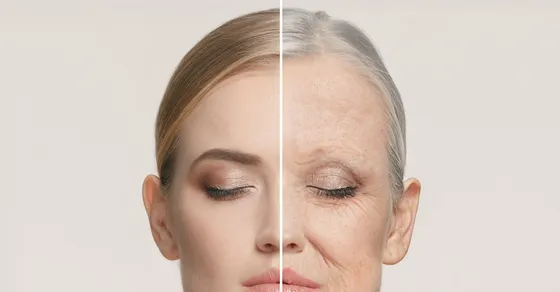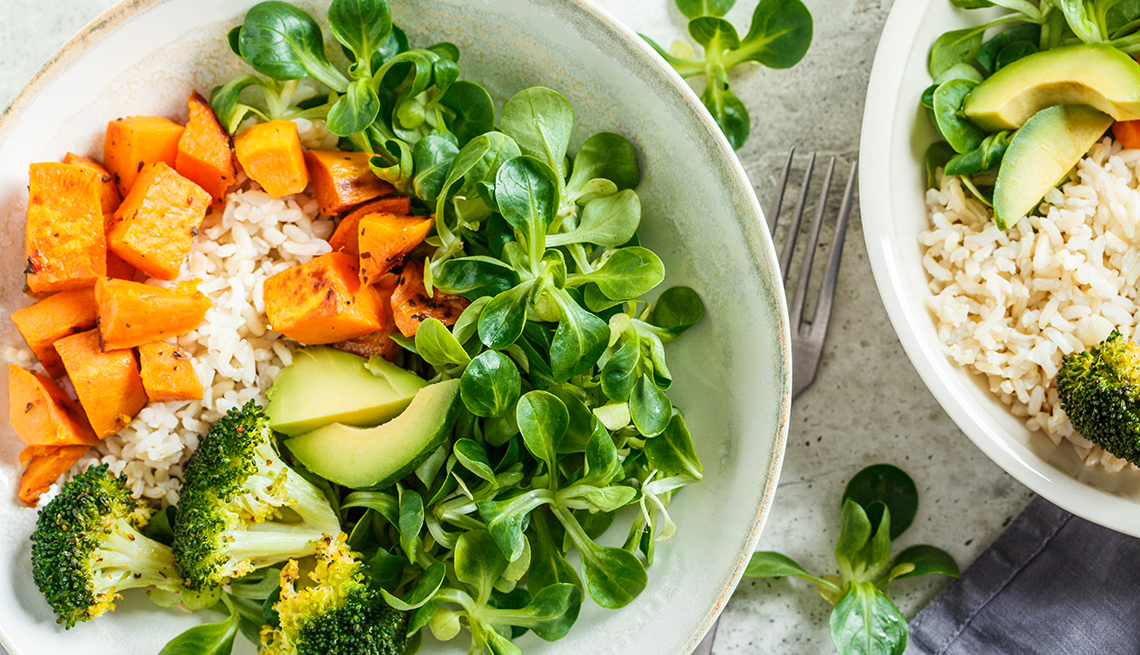How To Combat Wrinkles Naturally
Are you worried about how to combat wrinkles naturally? Well, as you grow older, your skin naturally begins to lose its elasticity. This is largely due to a reduction in the production of collagen and elastin, two essential proteins that help maintain the firmness and suppleness of your skin.
As collagen levels decrease, the skin starts to lose its tone and tightness, leading to visible signs of facial aging. Additionally, your skin’s ability to retain moisture diminishes, often resulting in dryness and the formation of wrinkles.
Repeated facial expressions, motions, and postures, along with the constant pull of gravity, can contribute to the development of wrinkles. While facial movements like smiling, frowning, or squinting may seem harmless, over time, these repetitive actions can lead to the appearance of fine lines.
Addressing Early Signs of Aging
If you’re starting to notice fine lines and wrinkles around areas like your lips, eyes, or chin, don’t be discouraged. There are numerous natural methods to slow down the aging process, minimize the appearance of wrinkles, and help your skin maintain a youthful glow.
By adopting certain skincare practices and making healthy lifestyle changes, it’s possible to protect your skin and delay the onset of deeper wrinkles.
Although you can preserve your skin’s youthful appearance for a while, it’s important to recognize that the aging process is inevitable. If non-invasive methods don’t provide the desired results, there are plastic surgery options available to address wrinkles and sagging skin.
However, most people can enjoy smoother skin and reduced wrinkles by focusing on proactive skincare routines.
Understanding Wrinkle Types
Wrinkles generally fall into two categories: dynamic and static wrinkles.
- Dynamic Wrinkles: These are caused by repeated facial expressions and movements. Common examples include smile lines, frown lines, and crow’s feet around the eyes. Repeatedly squinting or pursing your lips—such as when smoking—can accelerate the formation of these dynamic wrinkles, especially around the mouth and eyes.
- Static Wrinkles: These result from the natural effects of aging and the force of gravity on your skin. As your skin’s collagen and elastin production decreases, the skin begins to sag, giving rise to static wrinkles. These lines are more apparent when your face is at rest, unlike dynamic wrinkles that are associated with movement.
Ways on How To Combat Wrinkles Naturally
While no one can completely escape the aging process, there are numerous ways to slow down the visible effects on your skin and prevent premature wrinkles.
1. Limit Sun Exposure
While sunlight plays a vital role in maintaining health—such as promoting the production of vitamin D, regulating your sleep-wake cycle, and boosting your immune system—excessive sun exposure can have harmful effects on your skin. You only need a short amount of time in the sun to reap its benefits, but it’s easy to exceed that limit and risk damage.
Ultraviolet (UV) rays from the sun, especially UVA rays, penetrate deep into your skin, degrading its structure and accelerating the aging process by causing pronounced wrinkles and increasing the risk of skin cancer.
On the other hand, UVB rays target the skin’s outer layers, leading to surface-level damage, sunburns, and premature wrinkles. The most harmful sun exposure typically occurs between 10 a.m. and 4 p.m., when UV rays are strongest.
Wear Sunscreen for Protection
The best way to protect your skin from UV damage is to avoid direct sunlight during peak hours, seek shade, and wear protective clothing. If you must be outside, wearing sunscreen is essential.
Sunscreens are rated based on their sun protection factor (SPF), which indicates how long your skin can be exposed to the sun without being damaged. For extended periods outdoors, especially between 10 a.m. and 4 p.m., use sunscreen with a high SPF for optimal protection.
2. Reduce Stress
Stress not only affects your mental and emotional well-being but can also have a significant impact on your skin. When you’re stressed, your facial muscles tend to tense up, leading to the formation of dynamic wrinkles, which occur with repeated facial movements. Moreover, stress disrupts hormone levels, accelerating the skin’s aging process and causing it to become thinner, more fragile, and less resilient over time.
Relax, Practice Gratitude, and Think Positively
Adopting a positive mindset and practicing relaxation techniques can help you reduce stress, which in turn, reduces facial tension and slows down the aging process. Meditation, deep breathing, gratitude exercises, and maintaining an optimistic outlook can alleviate stress and help prevent premature wrinkles from forming.
3. Change Your Sleep Position
Did you know the way you sleep can influence the formation of wrinkles? Sleeping on your stomach or side can cause your face to press against your pillow, creating what are known as sleep wrinkles. While these wrinkles may be temporary at first, repeated compression over time can lead to deeper, more permanent lines as your skin loses its elasticity with age.
Sleep on Your Back
To avoid sleep wrinkles, it’s best to sleep on your back. This position prevents your face from pressing against your pillow, reducing the chances of wrinkles forming. You can also invest in specialized pillows designed to support your head, neck, and body, helping you maintain a back-sleeping position and further protecting your skin from compression.
4. Eat a Balanced Diet
A healthy, balanced diet is key to maintaining vibrant, youthful skin. Eating fresh, whole foods rich in essential vitamins and nutrients supports your skin’s natural repair processes, boosts collagen production, and helps your body combat oxidative stress. Incorporating foods high in antioxidants, such as fruits, vegetables, and healthy fats, can contribute to a more radiant complexion.
Stay Active
Along with a nutritious diet, regular exercise enhances blood circulation and promotes the delivery of oxygen and nutrients to the skin, helping to maintain its elasticity and youthful appearance. Together, a healthy diet and active lifestyle are powerful tools for keeping your skin glowing and reducing the signs of aging.
5. Avoid Excess Sugar
Refined sugar can cause significant damage to your skin and overall health. When you consume sugar, your body undergoes a process known as glycation, where sugar molecules bind to proteins like collagen and elastin.
This leads to the formation of advanced glycation end products (AGEs), which break down collagen and elastin fibers, two key components responsible for keeping your skin firm and elastic. As a result, your skin becomes more prone to wrinkles and signs of premature aging.
Opt for Fresh Fruits and Vegetables
To protect your skin, incorporate plenty of fresh fruits and vegetables into your diet. These foods are rich in antioxidants, which help guard your skin cells against damage from harmful UV rays, environmental pollutants, and free radicals. The deeper the color of the fruit or vegetable, the more likely it is packed with antioxidants.
Some key nutrients found in fruits and vegetables are vital for skin health:
- Beta-carotene: Found in orange and red foods, beta-carotene helps to maintain moisture in your skin and supports collagen and elastin production, protecting against the formation of wrinkles.
- Vitamin C: A potent antioxidant that promotes collagen production, accelerates healing, and protects your skin from damage.
- Bromelain: An enzyme with anti-inflammatory, antioxidant, and antibacterial properties, found in pineapples, which can improve skin texture.
- Vitamin E: Known for its anti-inflammatory benefits, vitamin E helps repair damage caused by UV rays and prevents future harm.
Best Fruits and Vegetables for Skin Health
Certain fruits and vegetables stand out for their high antioxidant content, which helps reduce wrinkles and keeps skin glowing:
- Tomatoes: Rich in lycopene, which protects against UV damage.
- Blueberries: Packed with antioxidants that help neutralize free radicals.
- Spinach and Watermelon: Hydrating and rich in vitamins that promote skin health.
- Cantaloupe and Red Peppers: Excellent sources of beta-carotene.
- Citrus Fruits: High in vitamin C, which supports collagen synthesis.
- Pineapple: Contains both bromelain and vitamin C, offering multiple skin benefits.
- Leafy Greens (Turnip Greens, Kale, Swiss Chard): Full of vitamin E for skin protection.
Other Skin-Boosting Foods
In addition to fruits and vegetables, other foods also offer significant benefits for youthful skin:
- Soy Products: Contain antioxidants and phytoestrogens that improve skin texture and firmness, helping to reduce wrinkles.
- Salmon: A rich source of essential fatty acids, salmon helps plump up the skin and reduce wrinkle formation.
- Garlic, Green Tea, Dark Chocolate, Nuts, and Seeds: All contain various antioxidants and compounds that nourish the skin and maintain its elasticity.
A diet focused on whole, unprocessed plant-based foods supports not just your skin, but your overall health, keeping you looking youthful longer.
6. Topical Treatments
There is a wide array of topical treatments available for addressing wrinkles, from over-the-counter anti-aging creams to home remedies. While some of these products are highly effective, others may offer little benefit.
Key Ingredients in Anti-Wrinkle Creams
When choosing a wrinkle treatment, look for creams containing scientifically backed ingredients:
- Alpha-hydroxy acids (AHAs): These acids gently exfoliate the skin, removing dead skin cells and stimulating collagen production, especially around delicate areas like the eyes.
- Tretinoin (Retin-A): A powerful ingredient approved by the FDA for reducing fine lines and deep wrinkles. Tretinoin also reverses sun damage, helping to restore a youthful glow.
- Idebenone, Growth Factors, and Pentapeptides: These chemicals have shown promise in enhancing collagen production and reducing the appearance of wrinkles, promoting firmer, smoother skin.
Topical Oils for Skin Health
Natural oils can also play a key role in keeping your skin moisturized and wrinkle-free. Oils like coconut oil, olive oil, and avocado oil are rich in fatty acids that help lock in moisture and protect the skin’s barrier. Mixing vitamin E or vitamin C into these oils enhances their ability to protect against environmental stressors and aging.
For an extra boost, some people add a few drops of essential oils such as carrot seed, clary sage, jojoba, neroli, or rose to create a nourishing serum. However, it’s important to remember that essential oils should always be diluted with a carrier oil like coconut or olive oil, as applying them directly to the skin can cause irritation.
Masks and Other Topical Treatments
Harnessing the power of foods rich in antioxidants, vitamins, and enzymes can provide your skin with direct nourishment. For instance, many people create egg white masks, applying the protein and collagen-rich egg whites directly onto their faces to help tighten and rejuvenate the skin.
You can also use pureed carrots or other fruits and vegetables as natural masks, allowing their nutrients to work effectively as a wrinkle treatment.
There are several ways to enjoy these benefits: you can prepare your own all-natural topical treatments, purchase over-the-counter creams featuring approved ingredients, or consult with a dermatologist for prescription-strength options. Whichever route you choose, your skin should feel nourished, moisturized, and revitalized after using these products.
- Drink Plenty of Water
Staying hydrated is essential for maintaining healthy, youthful skin. Drinking enough water helps to keep your skin moisturized, reducing the risk of wrinkles. When your skin is dehydrated, it becomes more prone to wrinkling and sagging. Additionally, activities like drinking alcohol and smoking can lead to dehydration, so if you indulge in these habits, it’s important to increase your water intake accordingly.
- Wash Your Face the Right Way
Keeping your face clean is crucial to prevent irritation caused by dirt, excess makeup, and sweat. However, over-washing or using harsh cleansers can strip your skin of its natural moisture, leading to dryness and increased wrinkles. Vigorous scrubbing can also damage the skin barrier.
To properly cleanse your face, use a gentle moisturizing cleanser and avoid aggressive scrubbing. Incorporating gentle exfoliation can help remove dead skin cells and promote collagen production in the deeper layers of your skin, but moderation is key to avoid overdoing it.
- Quit Smoking
Smoking is one of the most significant accelerators of the aging process, affecting your skin as well as your entire body. The repetitive motion of pursing your lips while smoking leads to facial distortion and the development of dynamic wrinkles around the mouth. Quitting smoking can greatly improve your skin’s appearance and overall health.
- Avoid Squinting
Squinting can lead to the formation of fine lines known as “crow’s feet” at the corners of your eyes. To help prevent these wrinkles, focus on maintaining a healthy skincare routine and protecting your skin. If you struggle to see, consider wearing corrective glasses or sunglasses when outdoors; not only do they protect your eyes from sun damage, but they also reduce the need to squint, helping to preserve your skin’s smoothness.
- Be Cautious with Face Exercises
While you may have come across claims that face yoga or facial exercises can improve skin tone and reduce wrinkles, the reality is often the opposite.
Engaging facial muscles can actually pull on the skin and contribute to wrinkle formation. Instead of rigorous face workouts, consider gently massaging your skin with oils like coconut or olive oil. This can stimulate blood flow and promote healing while reducing inflammation. Remember to be gentle, avoiding any tugging or pulling that could harm your skin.
Insights on How to Combat Wrinkles Naturally
Here are some additional insights and advice for managing and preventing wrinkles:
- Regular Use of Moisturizers
- Hydration: Keeping your skin well-moisturized is key to preventing wrinkles. Look for products containing hyaluronic acid, glycerin, or ceramides, which help lock in moisture.
- Night Creams: Consider using richer, more emollient night creams that work overnight to hydrate and repair your skin.
- Incorporate Retinoids
- Vitamin A Derivatives: Retinoids, like retinol, are well-known for their anti-aging benefits. They boost collagen production, promote cell turnover, and can help reduce the appearance of fine lines.
- Consultation: Start with lower concentrations to minimize irritation and consult with a dermatologist for recommendations tailored to your skin type.
- Use Antioxidants
- Protect Against Free Radicals: Incorporate serums or creams with antioxidants like vitamin C, E, and ferulic acid. They help combat oxidative stress caused by UV exposure and pollution, which can accelerate aging.
- Daily Routine: Apply antioxidant serums in the morning before sunscreen to enhance protection.
- Get Adequate Sleep
- Beauty Sleep: Quality sleep is crucial for skin repair and regeneration. Aim for 7-9 hours of uninterrupted sleep per night.
- Sleep Environment: Create a comfortable sleep environment by using a supportive pillow and keeping your room dark and quiet.
- Stay Active
- Exercise Benefits: Regular physical activity improves blood circulation, which helps nourish your skin. It also promotes a healthy glow and can help reduce stress, which can contribute to skin aging.
- Facial Exercises: Instead of vigorous face workouts, gentle facial massages can enhance circulation and reduce tension without pulling on the skin.
- Consider Professional Treatments
- Chemical Peels: These treatments can remove dead skin cells, improve skin texture, and stimulate collagen production.
- Laser Therapy: Laser treatments can target deeper layers of skin to promote tightening and collagen production.
- Microdermabrasion: This non-invasive treatment can help exfoliate the outer layer of skin and reduce fine lines.
- Limit Alcohol Intake
- Hydration Impact: Alcohol can dehydrate your skin, making it more prone to wrinkles. Limiting your intake can help maintain your skin’s moisture levels.
- Manage Your Diet
- Healthy Fats: Incorporate healthy fats into your diet, such as omega-3 fatty acids found in fish, walnuts, and flaxseeds. These fats help maintain skin elasticity and moisture.
- Limit Processed Foods: Reducing intake of processed foods and high-sugar items can improve overall skin health.
- Use a Humidifier
- Moisture in the Air: Especially in dry climates or during winter, using a humidifier can help add moisture to the air, preventing your skin from drying out.
- Stay Informed
- Educate Yourself: Keeping up with the latest skincare research and products can help you discover new methods and ingredients that may benefit your skin.
Implementing a combination of these strategies can help you effectively manage wrinkles and maintain a youthful appearance over time. Remember that individual results may vary, so it’s essential to find what works best for your skin type and concerns.
Benefits of Eating Strawberries
Benefits of Eating Pomegranate

A graduate of Computer Science and Information Management Technology. Diploma – Caregiving, Certificates – Dementia and Diabetes Awareness and Management. A researcher, blogger, songwriter, singer and acoustic guitarist. Born in an environment where natural talents such as healing are imparted at our natural birth. This natural talents of healing is the result of our genetic inheritance and the training from family environment.














